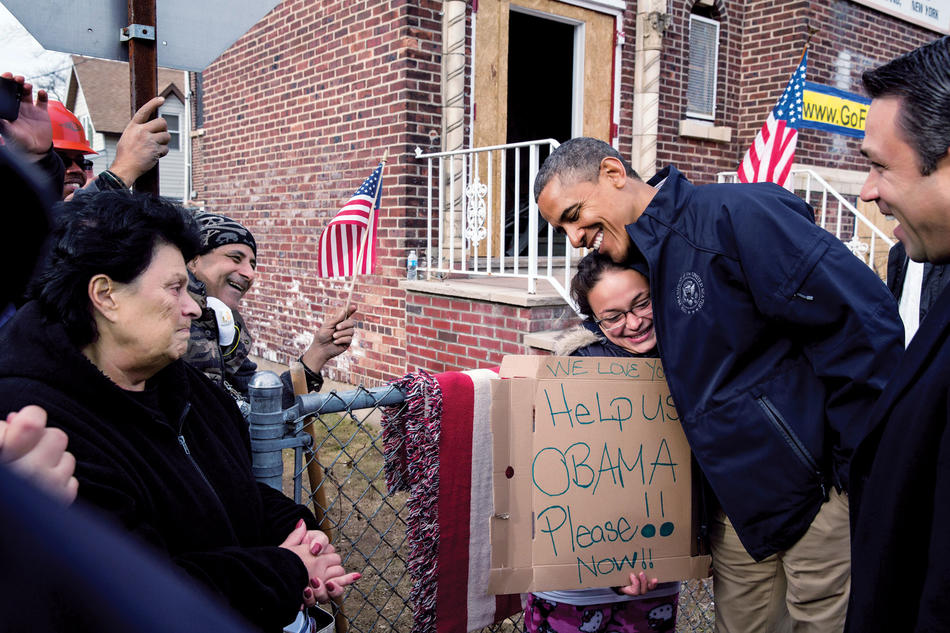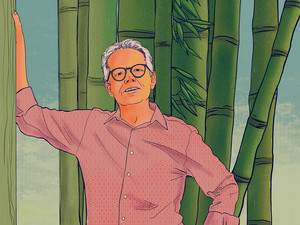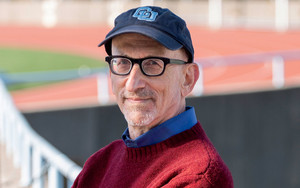On November 14, in his first press conference since his reelection victory over Mitt Romney, President Barack Obama ’83CC addressed a topic not mentioned in any of the three presidential debates, the last of which took place on the day Hurricane Sandy was born in the Caribbean.
“As you know,” he told reporters in the East Room, “we can’t attribute any particular weather event to climate change. What we do know is that the temperature around the globe is increasing faster than was predicted even ten years ago. We do know that the Arctic ice cap is melting faster than what was predicted even five years ago. We do know that there have been an extraordinarily large number of severe weather events here in North America, but also around the globe. And I am a firm believer that climate change is real, that it is impacted by human behavior and carbon emissions, and as a consequence, I think we have an obligation to future generations to do something about it.”
Obama went on to say that he didn’t know what either Democrats or Republicans were prepared to do, since this was “not just a partisan issue. I also think there are regional differences.” He suggested that action on climate change had to be linked to job creation and growth in order to win popular support.
The next day, Obama traveled north for the second time to visit areas stricken by Sandy, including Cedar Grove Avenue in Staten Island (above). He promised federal support, thanked local leaders and first responders, spoke with residents, called on insurance companies to fulfill their obligations, announced that Housing and Urban Development secretary Shaun Donovan would be the White House point person on rebuilding efforts, and vowed to work with Congress to do “everything we can do” to get the resources needed.
“During difficult times like this,” he said, “we’re reminded that we’re bound together and we have to look out for each other. And a lot of the things that seem important, the petty differences, melt away, and we focus on what binds us together and that we as Americans are going to stand with each other in their hour of need.”
Afterward, Obama returned to Washington, where, that evening, he attended a private screening of Lincoln.



